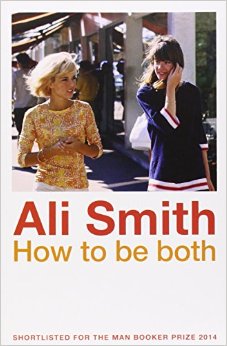I always try to approach a new book with as open a mind as possible. However, when the front cover is decorated with all the awards it has won and those which it is shortlisted for, it is impossible not to feel your expectations rise. Ali Smith’s “How to be both” was awarded the 2014 Goldsmiths Prize, the title of 2014 Costa Novel of the Year, the 2014 Saltire Society Literary Book of the Year Award and was also shortlisted for the 2014 Man Booker Prize. Meanwhile, in 2015, the novel won the Baileys Women’s Prize for Fiction and was shortlisted for the Folio Prize. These achievements, and the snippets from various reviews which decorate the back cover, are testament to the idea of this novel being a rather good read.
After finishing it, I am inclined to agree, but only to an extent. Smith presents us with two narratives; that of George, the bereaved daughter, and of the disembodied presence of Franchesco del Cossa. The ghostly Franchesco oscillates between following George, and returning to memories of 15th Century Italy. Interestingly, half of the books printed begin with George’s point of view, and the others with Franchesco’s, so that the readership is also divided by their differing initial experiences of the novel. The novel’s duality, is implied by the ‘both’ present in the title. This manifests itself in the work’s split narrative, and many of the themes it confronts. In particular, Smith looks at the dichotomy of male and female, making readers confront their own perceptions of gender stereotypes.
Smith is masterly in her manipulation of the divided narrative and ingenuously mirrors the physical split of the book throughout the storyline. However, to me, this seems too self-conscious, too self-referential. Although I can only admire Smith’s idea and execution, the continued emphasis of the cleverness of the novel left me feeling emotionally disconnected. There was no deep connection or understanding of George and Franchesco, even at the novel’s most tragic moments. While I could recommend reading ‘How to be both’ for the intelligence of both its construction and subject, its inability to take me along on the characters’ cathartic journey prevent me from praising it to the extent that it has been by others.







